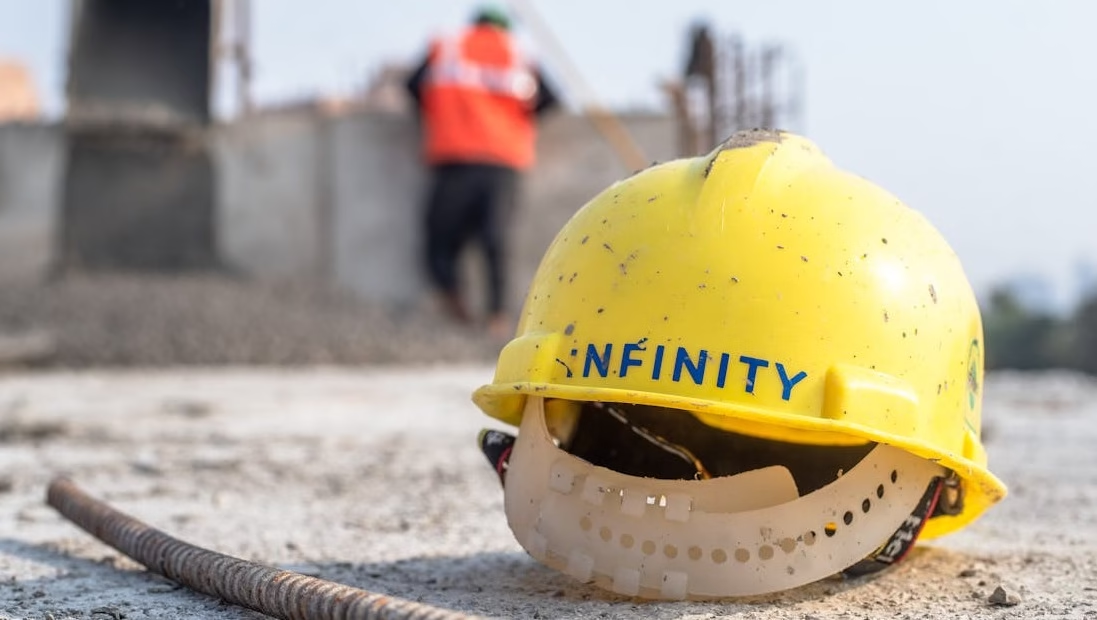

The construction industry is one of the most dynamic sectors in the UAE, contributing significantly to the country’s economic growth.
With large-scale projects, high-value contracts, and multiple stakeholders involved, understanding VAT regulations is crucial for contractors, developers, and suppliers.
Since the introduction of VAT in 2018, construction businesses have had to adapt to new tax rules, impacting project costs, invoicing, and cash flow management.
VAT in the construction sector is not as straightforward as in other industries. The nature of contracts, the distinction between supply of goods and services, and the involvement of subcontractors all add complexity.
Misapplying VAT rules can lead to financial penalties, delays in tax recovery, and disputes with clients or tax authorities.
For contractors, the key to navigating VAT successfully lies in understanding how VAT applies to different aspects of construction projects, from materials and labor to milestone payments and retention clauses. By ensuring compliance, businesses can avoid unnecessary tax burdens and maintain profitability.
This guide will break down everything contractors need to know about VAT in the UAE construction industry, covering tax treatment, invoicing, VAT recovery, and strategic tax planning.
The construction sector in the UAE is subject to the standard VAT rate of 5%, but the way VAT is applied depends on the nature of the supply.
Construction projects typically involve a combination of goods and services, including materials, labor, consultancy, and subcontractor work.
Each of these components has specific VAT implications, and contractors must ensure they apply the correct tax treatment to avoid compliance issues.
Construction services, including site preparation, structural work, electrical installations, plumbing, and finishing, are all subject to 5% VAT.
Whether a contractor is working on a residential, commercial, or infrastructure project, VAT must be charged on invoices issued to clients.
One key aspect contractors must be mindful of is the timing of VAT application. Since construction projects often involve phased payments, VAT must be accounted for at the point of invoicing, even if payments are received later.
This can create cash flow challenges if VAT is due to the Federal Tax Authority (FTA) before the contractor receives payment from the client.
To mitigate this, contractors should structure contracts to ensure VAT-inclusive pricing and negotiate favorable payment terms. If clients delay payments, contractors are still responsible for paying VAT to the FTA, making it crucial to manage cash flow efficiently.
Materials used in construction projects, such as steel, cement, glass, and wood, are also subject to 5% VAT when purchased from suppliers.
Contractors must ensure that they obtain valid VAT invoices from suppliers to claim input VAT deductions on their tax returns.
However, the VAT treatment of construction materials can become complex when distinguishing between goods supplied as part of a contract and materials purchased separately.
If a contractor supplies materials and labor together as part of a contract, VAT is charged on the entire contract value. If materials are purchased independently by the client, VAT is only applied to the labor portion.
One common mistake contractors make is failing to document input VAT correctly. Without proper invoices and records, VAT paid on materials cannot be recovered, leading to increased costs and reduced profitability.
Contractors should implement a robust invoicing and record-keeping system to track VAT on all purchases and ensure compliance with tax regulations.
Most construction projects involve multiple subcontractors working under the main contractor. Each subcontractor must issue VAT-compliant invoices to the main contractor, who in turn charges VAT to the client.
The flow of VAT in such arrangements must be carefully managed to prevent tax mismatches.
Subcontractors providing taxable services must register for VAT if their annual revenue exceeds the mandatory registration threshold.
Failure to register can lead to penalties, while incorrect VAT application can result in disputes and financial losses.
For main contractors, ensuring that all subcontractor invoices are VAT-compliant is essential. If a subcontractor fails to charge VAT correctly, the main contractor may face challenges in reclaiming input tax.
To avoid such issues, contractors should conduct periodic VAT compliance checks on their subcontractors and ensure that all documentation is in order before making payments.

The way a construction contract is structured plays a major role in how VAT is applied and managed. Since construction projects are long-term in nature, payments are typically made in stages, based on project milestones. This can create challenges in determining when VAT should be accounted for and reported.
Most construction contracts include milestone-based payments, where the contractor receives a portion of the total contract value upon completing specific stages of the project.
Under UAE VAT regulations, tax must be accounted for at the earlier of two events: when an invoice is issued or when payment is received.
This means that even if a client delays payment, the contractor is still responsible for paying VAT to the FTA based on the invoicing schedule.
To avoid cash flow issues, contractors should ensure that VAT is factored into their pricing structure and that milestone payments are scheduled in a way that aligns with their VAT reporting obligations.
Negotiating contracts with VAT-inclusive pricing can help mitigate the risk of bearing the tax burden in cases of delayed payments.
Another important consideration is retention payments, which are common in construction contracts. Retentions are typically held back by clients until the project is fully completed or after a defect liability period.
While the contractor does not receive the retention amount immediately, VAT must still be accounted for at the time of invoicing or when the work is completed. Proper planning is essential to ensure that VAT liabilities do not create financial strain.
Changes to the scope of work, additional work requests, or contract modifications can all impact VAT calculations. Contractors must issue VAT-compliant variation orders whenever there are changes to the original contract value.
These variations should clearly indicate the additional VAT chargeable to avoid disputes with clients.
If a project is canceled or if there are downward adjustments in pricing, contractors may need to issue VAT credit notes to reflect the revised contract amount.
Any reduction in VAT must be reported correctly to ensure that the business remains compliant with tax laws.
In some cases, VAT obligations are shifted from the supplier to the recipient under the reverse charge mechanism (RCM). This mechanism is mainly applicable when a UAE-based contractor engages with a non-resident supplier for construction-related goods or services. Instead of the foreign supplier charging VAT, the UAE contractor is required to self-account for the tax.
Understanding when to apply the reverse charge mechanism is crucial to avoid unnecessary VAT payments.
Contractors dealing with foreign suppliers should review their VAT obligations carefully and ensure that the correct treatment is applied in their tax returns.
Misapplying the reverse charge mechanism can result in compliance issues and penalties.
For contractors operating in the UAE, VAT recovery is essential to maintaining profitability. Construction businesses typically incur significant VAT expenses on materials, subcontractor services, and equipment rentals.
Without a proper VAT recovery strategy, these costs can quickly add up, reducing cash flow and increasing the financial burden on the company.
One of the key advantages of VAT registration is the ability to recover input tax on business-related expenses. Contractors can claim VAT refunds on purchases such as building materials, machinery rentals, professional services, and subcontractor fees.
However, to qualify for VAT recovery, businesses must meet strict documentation requirements.
The most critical requirement is maintaining valid VAT invoices. The Federal Tax Authority (FTA) mandates that invoices must include specific details, such as the supplier’s VAT registration number, the amount of VAT charged, and a clear description of the goods or services provided.
Missing or incorrect information can lead to the rejection of VAT refund claims, resulting in financial losses for the contractor.
To avoid such issues, construction companies should implement a structured invoicing system.
Ensuring that suppliers provide VAT-compliant invoices and conducting periodic internal audits can help businesses maximize their VAT recovery while remaining compliant with tax regulations.
Many contractors face challenges when attempting to recover VAT due to common mistakes, such as improper classification of expenses, lack of supporting documentation, and incorrect VAT reporting.
One frequent issue is claiming VAT on non-recoverable expenses, such as entertainment costs, personal-use vehicles, or non-business-related transactions.
Another common mistake is failing to track VAT incurred on imported goods. Contractors importing construction materials from outside the UAE must follow the proper customs procedures to ensure they can claim VAT on these imports.

If import VAT is not correctly recorded in tax filings, the business may miss out on significant input tax recovery.
For large-scale construction projects, VAT recovery can become complex due to the volume of transactions involved. Contractors must ensure that they reconcile VAT payments regularly and submit accurate refund claims to the FTA.
Any discrepancies between VAT collected and VAT paid can trigger audits or delays in refund processing.
In cases where a project involves multiple subcontractors, contractors must verify that VAT has been correctly applied at each stage of the supply chain.
Errors in VAT treatment by subcontractors can impact the main contractor’s ability to recover input tax, leading to unexpected tax liabilities.
Working with experienced VAT advisors can help construction companies streamline their VAT recovery process and avoid costly mistakes.
By ensuring that all transactions are correctly documented and that refund claims are submitted on time, businesses can optimize their cash flow and reduce financial strain.
The construction industry in the UAE often involves cross-border transactions, especially for companies working on international projects or sourcing materials from foreign suppliers.
Understanding the VAT treatment of such transactions is crucial to ensuring compliance and optimizing tax liabilities.
When a UAE-based construction company provides services outside the country, the VAT treatment depends on the location of the project.
In general, if the construction work takes place outside the UAE, the transaction falls outside the UAE VAT system, meaning VAT does not need to be charged.
However, contractors must ensure they comply with the tax regulations of the country where the project is located.
If a UAE-based company provides consultancy or project management services for an overseas construction project, the VAT treatment depends on whether the client is a business or an individual.
If the service is provided to a VAT-registered business outside the UAE, it may qualify as an exported service and be subject to a zero-rated VAT. However, if the service is provided to an individual, different tax rules may apply.
Many contractors in the UAE rely on imported construction materials, machinery, and equipment to complete their projects.
When importing goods, businesses must pay import VAT, which can later be recovered as input tax if the materials are used for taxable supplies.
However, incorrect documentation or failure to declare the imports properly can lead to delays in VAT recovery and potential penalties.
To streamline the VAT recovery process, contractors should ensure that they follow proper customs procedures and maintain accurate records of import transactions.
Engaging with a customs agent or VAT consultant can help businesses navigate complex import regulations and avoid unnecessary tax costs.
The reverse charge mechanism (RCM) is an important VAT rule that applies when a UAE-based construction business receives services from a foreign supplier.
Instead of the foreign supplier charging VAT, the UAE company must self-account for VAT on the transaction and report it in their tax return.
Applying the reverse charge mechanism correctly is crucial to ensuring compliance and avoiding double taxation.
Contractors should carefully review their service agreements with foreign suppliers to determine whether RCM applies and ensure that all VAT obligations are met.
The construction industry in the UAE is closely linked to the real estate sector, with contractors frequently working on residential, commercial, and infrastructure projects.
The VAT treatment of construction services varies depending on the type of development and the nature of the client, particularly when dealing with government projects or real estate developers.
The VAT treatment of construction services differs based on whether the project involves residential or commercial properties.
For residential buildings, the first supply of a newly constructed property by a developer within three years of completion qualifies for zero-rated VAT.
This means that while VAT is applicable, it is charged at a 0% rate, allowing developers to recover VAT on construction costs without increasing the price for buyers.
However, subsequent sales or leases of residential properties are exempt from VAT, meaning developers cannot claim input VAT on related expenses beyond the first sale.
For commercial buildings, such as offices, shopping malls, and hotels, all sales and leases are subject to 5% VAT.
Contractors working on commercial projects must charge VAT on their services, and developers can recover VAT on construction-related costs, provided they meet the necessary compliance requirements.
Contractors should be aware of the distinction between residential and commercial projects, as misclassifying a project can lead to incorrect VAT treatment and potential tax liabilities.
Ensuring that VAT is correctly applied at every stage of the construction process is essential to avoiding financial penalties and compliance risks.
In certain cases, contractors may work on government projects that involve special VAT considerations. While most government-related construction services are subject to 5% VAT, some projects may qualify for VAT exemptions or special tax treatments.
Contractors working with government entities should carefully review contract terms to determine how VAT should be applied.
If a project is VAT-exempt, contractors must ensure that they do not mistakenly charge VAT on invoices, as this could lead to compliance issues and potential disputes.

For government-funded infrastructure projects, VAT treatment can vary based on the specific agreements between contractors and public authorities.
Consulting with tax professionals can help contractors understand their VAT obligations and ensure compliance with government requirements.
Some construction projects involve mixed-use developments that include both residential and commercial components.
In such cases, VAT recovery may be complicated, as only the commercial portion of the project qualifies for full VAT recovery.
The residential component, if exempt from VAT beyond the first sale, may limit the developer’s ability to reclaim input VAT.
Contractors and developers working on mixed-use projects must implement a proper VAT apportionment strategy to determine the correct amount of input VAT that can be recovered.
Incorrect calculations can lead to compliance issues or financial losses due to unclaimed VAT.
The construction industry faces several VAT-related challenges due to the complexity of contracts, long project durations, and the involvement of multiple stakeholders.
Contractors who fail to address these challenges proactively may encounter compliance risks, cash flow problems, and potential disputes with clients or tax authorities.
Understanding these challenges and implementing strategic solutions can help businesses avoid unnecessary costs and penalties.
One of the biggest challenges contractors face is the mismatch between VAT liabilities and actual cash inflows. Since VAT is due when an invoice is issued or payment is received—whichever comes first—contractors may be required to pay VAT to the Federal Tax Authority (FTA) before they receive funds from their clients.
This can create serious cash flow issues, especially for businesses working on long-term projects with extended payment schedules.
To mitigate this problem, contractors should consider structuring contracts with VAT-inclusive pricing to ensure that the tax burden is clearly accounted for in financial planning.
Negotiating shorter payment cycles or upfront VAT payments from clients can also help businesses manage their tax obligations more effectively.
Construction contracts often involve a mix of taxable and exempt supplies, making VAT classification complex. Misapplying VAT rates—such as charging 5% VAT on an exempt or zero-rated supply—can result in compliance issues, financial losses, and potential audits from the FTA.
To avoid errors, contractors should conduct a thorough review of their contracts and clearly define whether services fall under standard-rated, zero-rated, or exempt categories.
Seeking professional VAT advice when dealing with complex projects can help ensure correct tax treatment and reduce the risk of non-compliance.
Retention clauses are common in construction contracts, where a portion of the payment is withheld until the project is completed or defects are rectified.
While contractors do not receive the retention amount immediately, they are often required to account for VAT on the full invoice value at the time of billing.
If a client refuses to release the retention payment due to project disputes, the contractor may face cash flow difficulties while still being liable for VAT.
In such cases, businesses should explore legal avenues for recovering payments and consider issuing VAT credit notes if a downward adjustment is required.
Construction projects frequently undergo changes due to modifications in scope, additional work requests, or unforeseen site conditions. These variations can impact the total contract value, requiring adjustments to VAT calculations.
Contractors must ensure that all variations are properly documented and that VAT is applied correctly on revised contract amounts.
Failing to update VAT treatment for contract changes can lead to discrepancies in tax filings, making the business vulnerable to FTA audits and penalties.
The construction industry is subject to strict VAT compliance requirements, and the FTA frequently conducts audits to ensure businesses are adhering to tax regulations.
Contractors who fail to maintain proper VAT records, issue compliant invoices, or submit accurate tax returns may face fines or legal consequences.

To minimize audit risks, businesses should implement strong VAT compliance procedures, including:
Working with a tax consultant can help construction companies strengthen their VAT compliance strategy, ensuring they are prepared for any potential FTA audit.
VAT compliance in the UAE construction industry is complex, with multiple layers of regulations affecting contractors, subcontractors, suppliers, and developers.
From milestone payments and retention clauses to the correct classification of taxable and exempt supplies, businesses must carefully manage their VAT obligations to avoid penalties and cash flow disruptions.
Understanding how VAT applies to construction services, building materials, subcontractor agreements, and government projects is essential for ensuring compliance.
Contractors who fail to account for VAT correctly may face serious financial consequences, including delayed refunds, unexpected tax liabilities, and legal disputes with clients or tax authorities.
To successfully navigate VAT regulations, construction companies should adopt strategic tax planning measures, maintain accurate records, and implement robust invoicing systems.
Engaging with experienced VAT professionals can provide businesses with the guidance needed to optimize VAT recovery, manage tax risks, and stay compliant with UAE tax laws.




Schedule a consultation call and learn how our expertise in accounting and tax services can benefit your business.